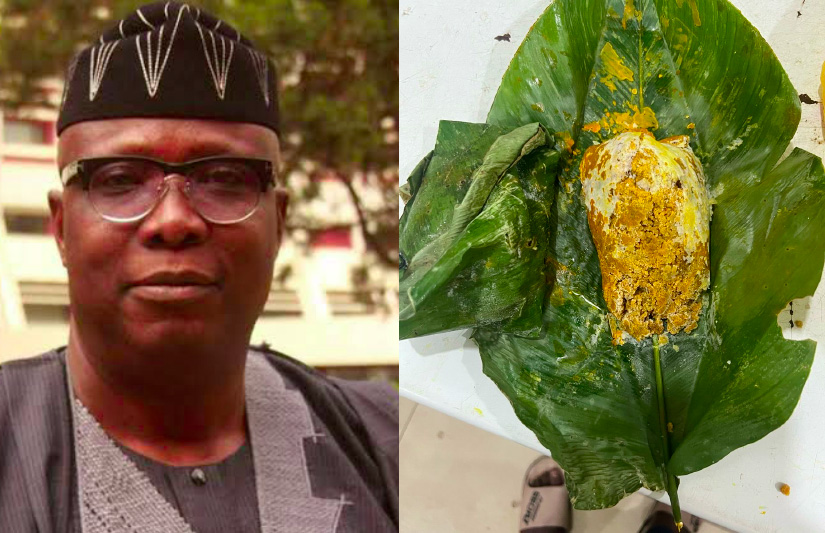
ASHE Foundation backs Obasanjo call for Afro-democracy
March 16, 2025
Traditional rulers should be an asset to Nigeria’s development and greatness and not a liability – Obasanjo
March 20, 2025Have you ever heard of Dele? No? Well, neither had I—despite being an unapologetic foodie.
Dele is a peculiar Ife dish made from beans and okra, once a staple in the community but nearly lost to history. Awhile ago, while waiting to deliver a speech to the Network of Obas from Osun State I had a fascinating conversation with HRM Oba Bankole Ojutalayo, the Larooka of Wanikin-Obamurewa, who shared the remarkable story of how this dish was brought back from the brink of extinction.
When His Imperial Majesty, the Ooni of Ife ascended the throne, he discovered that Dele—once a cherished part of Ife’s culinary heritage—had vanished. The dish was no longer being prepared, and the knowledge of its preparation was fading.
Determined to restore this cultural treasure, the Ooni tasked his chiefs with finding anyone who still knew how to make it. After a thorough search, they found an elderly woman in a remote village who still possessed the skill.
Realizing that preservation required more than just memory, the Ooni took action. He recruited 15 young women and sent them to learn the delicate art of preparing Dele. After their training, they returned to the palace, where they showcased their newfound expertise, preparing the dish for chiefs, kings, and princes.
But the Ooni did not stop there. Understanding that culture thrives through practice and community adoption, he sent the women out across Ile-Ife to introduce Dele to the people. And just like that, a once-forgotten meal made its grand return to the land of its origin.
Oba Ojutalayo came to today’s gathering prepared—he had Dele ready for us to taste. Unfortunately, I was fasting. But I watched His Excellency, Prince Olagunsoye Oyinlola, savor it with Eko (a corn-based accompaniment), thoroughly enjoying this long-lost delicacy.
This story is more than just about food. It is a lesson in cultural preservation. A conscious king is not just a ruler; he is a guardian of heritage, a custodian of identity, and a bridge between the past and the future. The Ooni of Ife’s effort to revive Dele shows that tradition does not have to disappear—it can be nurtured, restored, and passed on.
A king who is conscious of his role will revive dying customs, protect cultural expressions, and ensure that the next generation inherits not just the land, but the stories, flavors, and traditions that define their people.
And so, thanks to a king who understands his duty, Dele lives on—a delicious symbol of what it means to sustain culture through action, not just memory.
Babafemi Ojudu





